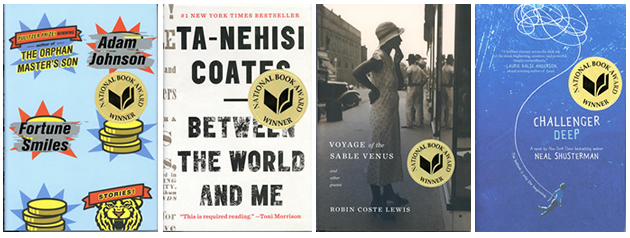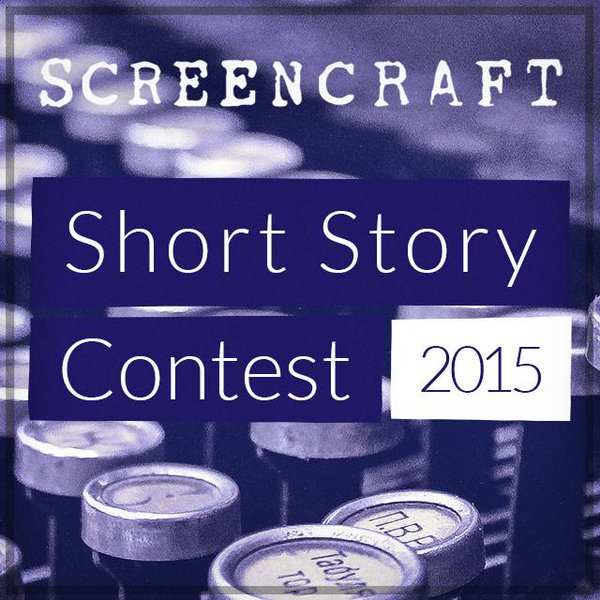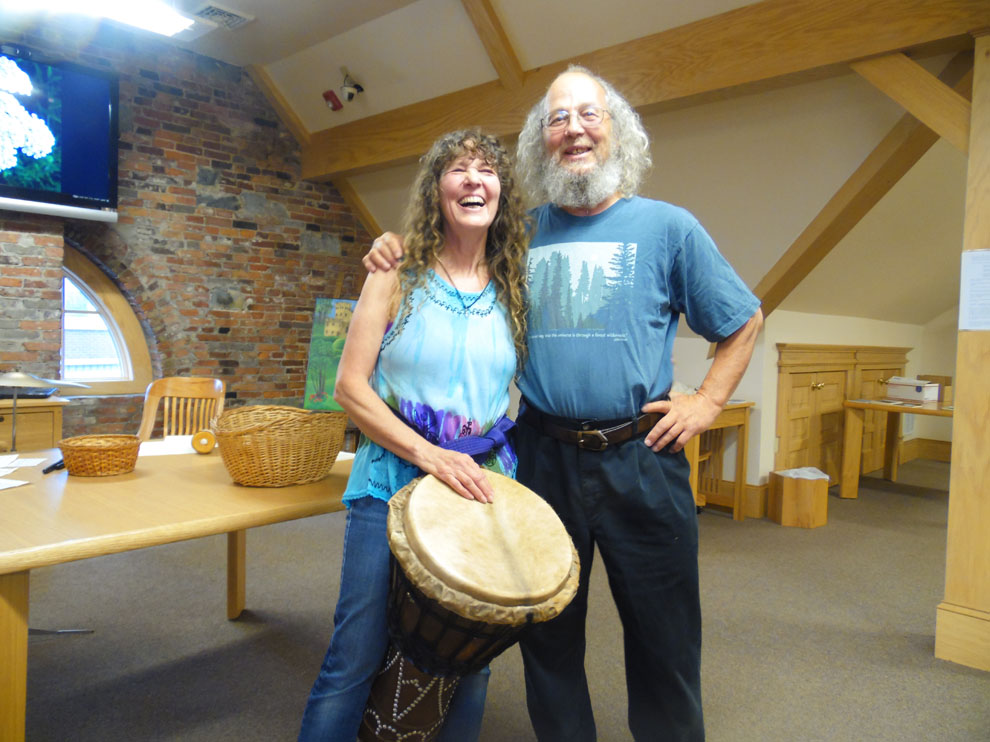2015 National Book Award Winners Announced
On Wednesday night in New York City, the winners of the 2015 National Book Awards were announced. The poetry award went to Robin Coste Lewis for her collection, Voyage of the Sable Venus (Knopf). Adam Johnson took home the fiction award for his story collection Fortune Smiles (Random House). Ta-Nehisi Coates won in nonfiction for Between the World and Me (Spiegel & Grau). Neal Shusterman won in young people’s literature for Challenger Deep (HarperCollins). Each winner receives $10,000.

Robin Coste Lewis is a Provost’s Fellow in poetry and visual studies at the University of Southern California, and a Cave Canem fellow. Voyage of the Sable Venus is her debut poetry collection, which questions the historical idea and role of the black female figure in America.
Ta-Nehisi Coates is a national correspondent for the Atlantic and is the recipient of a 2015 MacArthur Genius grant. Between the World and Me is a meditation on race in America, written in the form of a letter to the author’s son. Coates dedicated his award to his friend Prince Jones, who was killed by a police officer in 2000. In his acceptance speech, Coates said, “I have waited fifteen years for this moment.”
Adam Johnson won the 2012 Pulitzer Prize for his novel The Orphan Master’s Son. He has received a Whiting Award and fellowships from the National Endowment of the Arts and the Guggenheim Foundation. He teaches creative writing at Stanford University and lives in San Francisco. In his winning collection, Fortune Smiles, Johnson “delves deep into love and loss, natural disasters, the influence of technology, and how the political shapes the personal.”
Publishers submitted 1,428 books for review this year: 419 in fiction, 494 in nonfiction, 221 in poetry, and 294 in young people’s literature. The awards are given annually to American writers who published books in the previous year. The finalists each receive $1,000.
Novelist Don DeLillo received the National Book Foundation’s Medal for Distinguished Contribution to American Letters for his lifetime contribution to American literature. Novelist Jennifer Egan introduced DeLillo, and said of his work, “He has an empath’s gift for capturing colloquial rhythm and speech…I’m so grateful to DeLillo for proving to my generation that fiction can still do anything it wants.”
Meanwhile, James Patterson was presented with the Literarian Award for outstanding service in the American literary community. Patterson donated more than one million dollars in grants to independent bookstores last year, and has donated thousands of books to children and schools in need. Patterson said in his acceptance speech, “I feel compelled to help independent bookstores survive and prosper, and help school libraries any way that I can…let’s find a way to make sure there is another generation of readers out there.”
Read about the winners and finalists, and watch the full video from last night’s ceremony at the National Book Foundation website.
The National Book Foundation was founded in 1986 with the mission to “celebrate the best of American literature, to expand its audience, and to enhance the cultural value of great writing in America.”





 Using the
Using the 